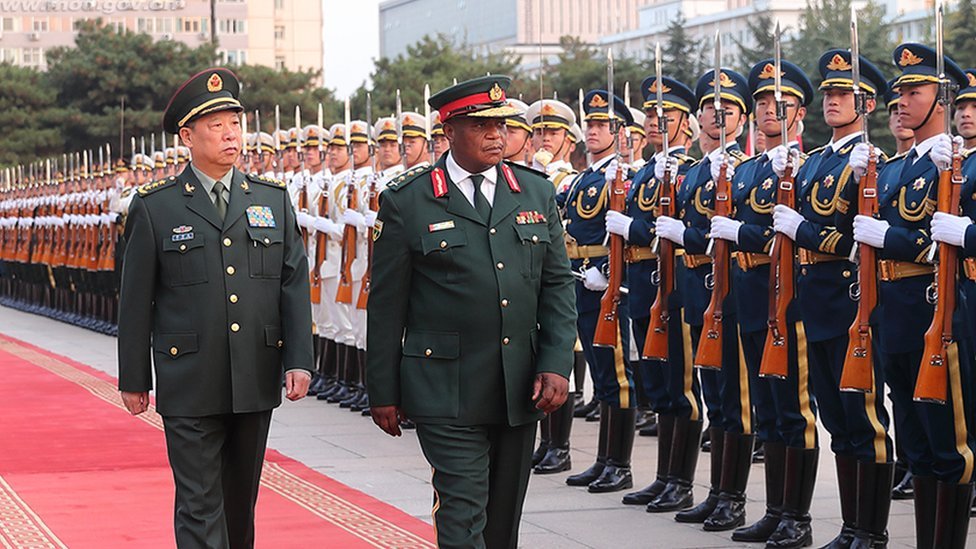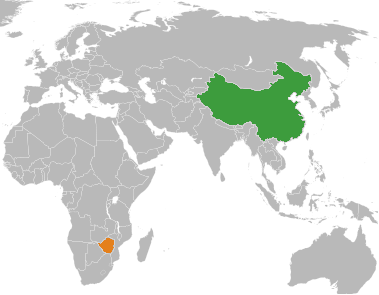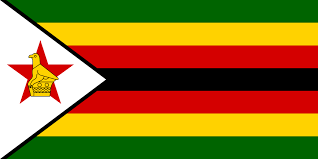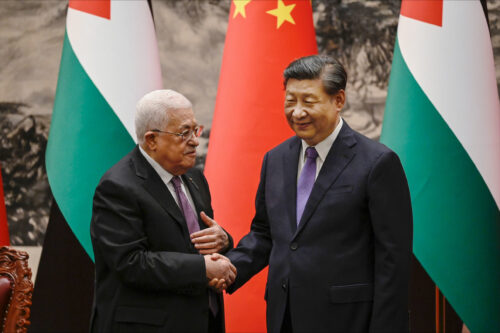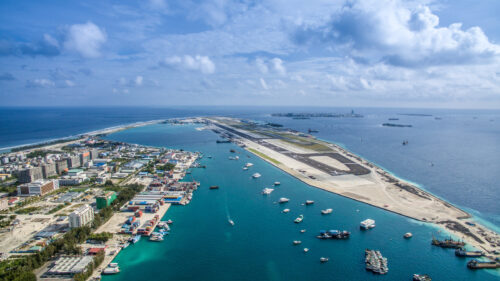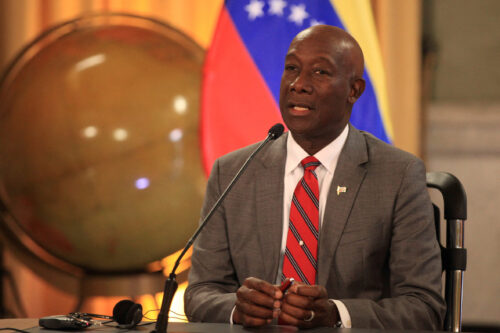Our weekly explainer series, China Ties, looks at China’s relationship with different countries of the world.
Chinese-Zimbabwean relations are complicated — China funded the overthrow of British colonial rule, but its companies stand accused of treating locals like slaves. China is Zimbabwe’s biggest foreign investor and kept the nation afloat amid Western sanctions, but is now estimated to control 90% of Zimbabwe’s mining industry (with the largest lithium reserves in Africa) and helps keep the economically disastrous Zimbabwe African National Union – Patriotic Front (ZANU-PF) in government.
Over the years, Chinese interests have been a power behind the throne — once again, ZANU-PF triumphed in national elections last week; once again, amid accusations of rigging the system — with a hand in making and breaking its leaders.
Diplomats of the two countries smother their rhetoric in mutual affection. Like neighboring Zambia, Zimbabwe has earned the moniker “all-weather friend,” this time from Xí Jìnpíng 习近平 in 2015 — a title only given to 14 countries worldwide. Former president Robert Mugabe (1987–2017) went further, describing China in 2006 as “our second home…a part of us.”
China had certainly been a key part of Mugabe’s independence movement, providing military training to the fledgling ZANU-PF in 1963. But they cemented ties in 1979, when the Soviets refused to sponsor ZANU-PF in the Rhodesian Bush War, a general uprising against Zimbabwe’s crumbling white government. China agreed to sponsor ZANU-PF and Mugabe, who by then had become their leader.
Once the war was won by ZANU-PF in 1980, one of the first official acts of the new government was to get the foreign minister over to Beijing as a thank-you. In 1984, China was Mugabe’s biggest arms supplier when he suppressed his main political rival in Matabeleland.
Republic of Zimbabwe
Founded: April 18, 1980
Population: 16.7 million
Government: Constitutional Democracy (de jure) Authoritarian One-Party State (de facto)
Capital: Harare
Largest City: Harare
Established relations with the P.R.C.: April 18, 1980
China took little economic interest in Zimbabwe at the time — Jeremy Youde notes Dèng Xiǎopíng 邓小平 was interested in cultivating relations with more wealthy nations (although he did enlist Zimbabwe’s help to defend them in the UN after the Tiananmen Square massacre).
But everything changed with Mugabe’s “Look East” policy in 2003. The human rights abuses of his regime had led to the EU, U.S., and U.K. putting sanctions on Zimbabwe from 2001, meaning the government had to look elsewhere for investment. “We have turned East, where the sun rises, and given our back to the West, where the sun sets,” Mugabe said in 2005. Trade between the two increased by 476% between 2002 and 2013, to $1 billion, weakening the effect of Western sanctions.
Initially about enticing Asian investment, “Look East” was dominated by Chinese interests — so much so that in 2008 China spearheaded a defense against a UN proposal for a Zimbabwe arms embargo (China being a major arms supplier to them), and in 2015 Mugabe announced Zimbabwe would be the first country to adopt the RMB as its primary international currency.
Today, China does not dominate Zimbabwean trade — that would be South Africa — but it has its fingers deep in the country’s most important pies:
Energy
Chinese companies have signed all sorts of big hydroelectric and coal-fired projects to solve Zimbabwe’s substantial electricity deficit, but they have been accused of building more than is necessary.
A deal was in the pipeline to build the $3 billion Sengwa coal-fired power station, funded by ICBC, despite Melania Chiponda of Harare’s Centre for Alternative Development pointing out to The China in Africa Podcast that all the government need do was improve the capacity of pre-existing power stations rather than take on such large amounts of debt for new ones. It also seemed strange for China to be financing new coal-fired power stations after Xi banned domestic new builds. In 2021 ICBC announced it was withdrawing from the deal.
Agriculture
China has continually sponsored Zimbabwe’s agricultural reforms (where white colonial settlers were forced off the land they themselves had taken from locals), and Chinese companies now dominate tobacco farming, Zimbabwe’s most important crop. Sales have rebounded with the help of Chinese financing, but some farmers have accused Chinese companies of placing them in unfair loan deals. Repayment rates are not adjusted if and when prices drop, forcing some farmers to sell key assets to keep repayments up in hard times.
Aid
Zimbabwe is a prime target for Chinese goodwill gestures given the difficulties the nation faces. The Chinese government announced a massive $5 billion grant in 2016 to fund cheap urban housing developments and boost Zimbabwe’s food production. They donated $2 million after Cyclone Idai, a destructive tropical storm in 2019. Zimbabwe was the second-largest receiver of Chinese vaccines during COVID-19. It even funded a grant for the Zimbabwean parliament building in Harare.
Mining
Chinese mining companies have been given preferential treatment under ZANU-PF. In 2008, Chinese investment was so important that Mugabe exempted all Chinese-owned companies from a nationalization law that gave locals majority ownership of large companies — allowing them to corner the market. A 2022 law ordering all mines to process their ores domestically does not touch any companies that bought before the law was passed — meaning mines owned by Chinese are unaffected.
Chinese companies now dominate the industry. Over the past three years, Zimbabwe’s previously neglected lithium mines have become hot property, thanks to rising demand for EV batteries.
Controlling shareholdings in the biggest mines were swiftly bought up and put into operation by Sinomines, Zhejiang Huayou Cobalt, and Chengxin Lithium Group, with a projected combined total of 1 million metric tons of lithium concentrate per year. That would put these three mines alone at almost double Australia’s entire output for 2022, the world’s largest lithium producers today.
Many want in. Thirty-three Chinese companies were granted lithium mining licenses in the first quarter of 2023, the highest number in any business category of all nations listed. But Chinese mining companies in the country have come under criticism from locals for pollution, violating sacred sites, and mistreatment of Zimbabwean workers, which both the Chinese embassy and Chinese companies deny.
The Marange diamond mines — churning out gems for lucrative profits amid brutal state-backed violence — are controlled by companies like Anjin Investments, a powerful force in the country, joint-owned by an Anhui firm and the Zimbabwean army. In 2016, Mugabe revoked its mining license as part of a plan to nationalize Zimbabwe’s mines.
But Chinese mining companies employ Zimbabwean military officials in senior positions — making it dangerous for Zimbabwe’s leaders to go against their interests. “As military loyalty is vital for Mugabe’s continued stranglehold on power in Zimbabwe, China’s leverage over the regime has increased substantially with these appointments,” explained international relations expert Samuel Ramani in 2016. “China’s vital role in propping up the Mugabe regime prevents him from enacting anti-Chinese policies to appease public discontent over corruption.”
Politics
Zanu-PF’s continued place in government may be at the behest of China, Chinese mining companies, and the Zimbabwean military. Khadija Sharife of the Overseas Crime and Corruption Reporting Project uncovered intelligence documents claiming to show Mugabe’s strategy for rigging the 2013 elections — taking advice from a member of the Chinese Communist Party and with Party donations of “radio jammers” to hinder the spread of information, while the plan was funded by two Chinese diamond-mining companies working in the country (Anjin being one).
In 2017, suspicions swirled that the Chinese military may have green-lit the coup that finally overthrew Mugabe — General Chiwenga, who did the deed, having made a mysterious visit to Beijing two days before the event.
Intriguingly, two years later the military-backed Anjin was back in business in Zimbabwe, despite the nationalization law — “It’s clear that there is a military hand behind the return of Anjin,” said Zimbabwe’s Centre for Natural Resource Governance director, Farai Maguwu.
ZANU-PF continues to promote China as a special friend, linking the nation’s recent successes both to China, and to ZANU-PF’s good relations with China. For many years, China has seemed less keen on Zimbabwe than Zimbabwe was with China, often failing to grant Mugabe the amount of aid money he frequently asked for. In the past, big projects have been announced with much fanfare — like the Sengwa power plant, and a $1.2 billion high-speed railway in 2012 — and then quietly died. Multiple projects recorded by Aiddata note this was because of high risk: a lack of cash on the Zimbabwean government’s side to make such projects a sensible investment.
But this could now be changing. In the first half of 2023, the Zimbabwean government issued more business licenses to Chinese companies than every other listed nationality put together, mostly in mining. Anjin has also doubled down — in 2021 it took over the country’s most productive diamond mine from the government, despite Mugabe’s nationalization law still being in place.
In Zimbabwe, China’s powerful enough to do what it likes.
